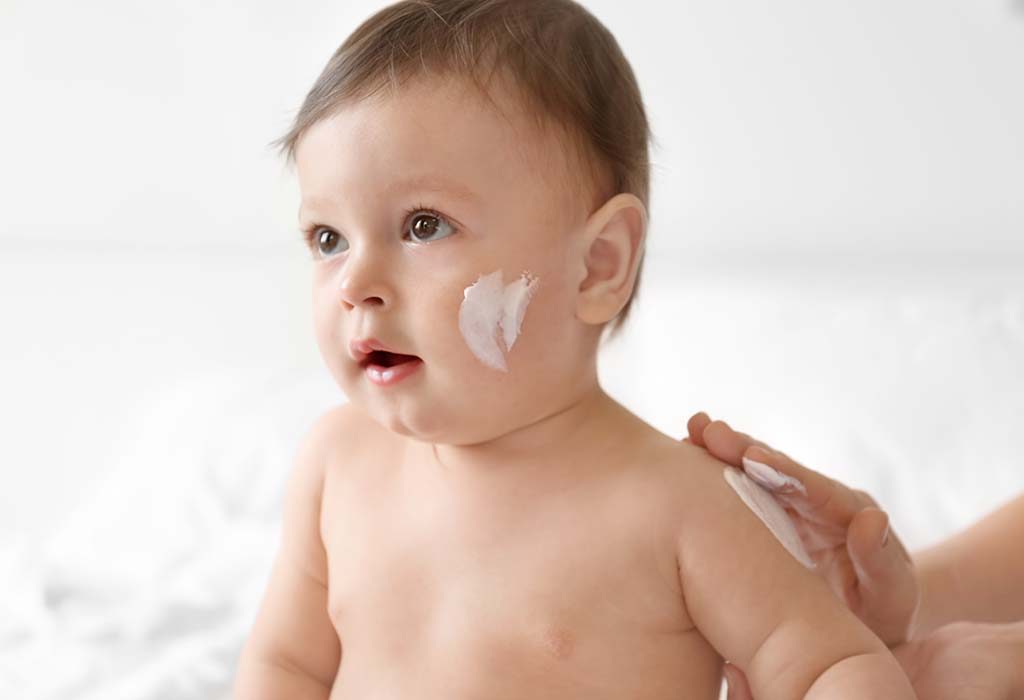A baby’s skin is thinner than an adult’s, making it unique. The Expert often refers to this as “more delicate and sensitive” skin. Environmental variables, including variations in humidity and temperature, have a more significant impact, and the baby’s skin is more susceptible to these conditions.
Skin serves as their first line of defense against the hostile environment outside. That’s why you may need extra care for your baby’s skin, which may require more protection. If you are wondering how to Keep your Baby’s Skin Healthy, here are some tips.
Give Proper Bath
To keep a baby clean, one needs two to three baths a week in warm, not hot, water. Temperature and water level are the first steps to a successful infant bath. Pour cupfuls of water over your baby’s shoulders to keep them warm as you bathe them. Wash your baby’s hair and scalp using a baby shampoo-soaked washcloth. You can use a dampened cotton ball to clean their face.
Place one hand on your baby’s neck to hold their head and the other on their bottom; raise them out of the tub with your fingers around one leg. Wrap a hooded towel around them. Apply baby lotion as soon as your skin is dry to keep it soft and supple.
Proper Diapering
As a new parent, you’ll have to perform many things for your baby, including a lot of diaper changes. Changing your child’s diaper often and cleaning correctly with baby wipes are essential.
Gently pat your baby’s bottom dry after using diaper cream or warm water from a spray bottle. Allow for some air-drying time to avoid the development of an itchy diaper rash as a result of excessive wetness. Also, be sure to get diapers that aren’t overly tight, which can irritate, and aren’t scented.
Avoid Direct Sunlight
You should try to keep your infant out of the sun as much as possible. Even in winter, you should avoid exposing your skin to direct sunlight.
You should not use sunscreen on a newborn under the age of six months, according to the FDA (Food and Drug Administration). Instead, they advise the following course of action:
- Keep your baby in the shade most of the time.
- Protect the neck and ears of your newborn by using a hat.
- Use Loose-fitting, lightweight clothing that covers the arms and legs of your baby at all times.
- Please do not go out in the sun between 10:00 a.m. and 4:00 p.m., when the UV rays are at their highest.
- If you’re going to be outside for more than a few minutes, give your baby some breastmilk or formula to keep them healthy and hydrated.
AAP (American Academy of Pediatrics) also advises the same thing. Do not use sunscreen for babies under six months, while older kids can wear an SPF of at least 15.
Be Aware of What You’re Buying
The best bet is to use baby-specific skincare products, such as fragrance- and tear-free shampoos. Be aware of your child’s reaction to each one you use if they are allergic.
Always have a stock of lotions on hand to keep your newborn’s skin hydrated. Ointments are a better option for keeping your baby’s skin as they have a thicker consistency.
Do not use scented, antibacterial, and deodorant soaps until your kid is a toddler since they may be too harsh for them. Baby soaps are the most fantastic option for your child’s skin and hair care.
Use A Humidifier
A cool-mist humidifier in your baby’s room can help keep the air moist throughout the winter months. Mold may grow in humidifiers if they are not cleaned routinely. During the dry, chilly months, give your kid enough fluids.
Look Out for Heat Rash
If your baby becomes too hot, it may get a heat rash. Skin creases and regions where clothing rubs against the skin are common locations for this condition. Tiny red patches appear on the skin when a baby has a heat rash, which is especially true for newborns with fair skin.
When the sweat glands get clogged, a heat rash develops. The sweat glands might get overworked or clogged by hot and humid conditions, oils, or other ointments, resulting in inflammation.
Keep your baby’s skin cool and steer clear of oil-based products when caring for them. A cold bath or towel might help soothe the rash if the rash is itchy. If the rash doesn’t go away in three days, the skin seems infected, or your infant gets a temperature of 100°F or higher, you should talk to a best dermatologist.
Keep an Eye on Nail growth.
Your baby’s nails may be nonetheless sharp despite their diminutive size and thinness. An eye on your baby’s nail growth is good since long or sharp nails might injure the face or body.
Keep your baby’s skin free of irritants, dry, and protected from the sun. Using too many moisturizers or other skincare products might exacerbate skin issues, so be careful not to overdo it. In the first year of life, babies are vulnerable to various skin problems. Visit Marham to Consult a Dermatologist for further information about any skin problem.
FAQs
1. How can I keep my baby’s skin hydrated naturally?
Take a tepid bath rather than a hot one, and use a fragrance-free, soap-free wash. Rather than rubbing your baby’s skin dry after bath time, use a towel and gently pat it to prevent any more irritation. Apply moisturizer after your shower or bath to keep the moisture in.
2. Is coconut oil safe for a baby’s delicate skin?
Coconut oil hydrates and nourishes the skin because of its high content of vital fatty acids and proteins, so it is safe for your baby.
3. Which oil can I use to massage my baby’s skin?
Infants who are fussing and fussy can be soothed by a nice body massage, which helps them sleep. Because of its antibacterial characteristics and ease of absorption by the skin, massage with coconut oil is an excellent choice.



